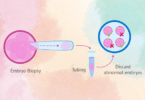Chia seeds are one of the world’s healthiest foods, packed with essential nutrients and antioxidants. Chia seeds are tiny black seeds that come from the Salvia hispanica plant, which belongs to the mint family. They were such a staple food for the ancient Aztecs and Mayans and native to Mexico and Guatemala.
Chia seeds are a dense source of omega-3 fatty acids, carbs, protein, fiber, antioxidants, and calcium. Chia seeds are white, brown, or black in colour also they are tiny, oval, flat-shaped seeds and have a lustrous and smooth texture. Chia seeds have a variety of health benefits, including the ability to aid digestion, lowering the risk of heart disease, and many more.
Nutrition Facts of Chia Seeds
One ounce, about 28 grams of chia seeds has approximately:
- 138 calories
- 4.7 grams protein
- 8.7 grams fat
- 12 grams carbohydrate
- 9.8 grams fiber
- 0 grams sugar
Chia seeds also contain vital fatty acids, vitamin A, vitamin B, vitamin E, and vitamin D, as well as minerals such iron, iodine, magnesium, niacin, and thiamine, in addition to the nutrients stated above.
Health Benefits of Chia Seeds
Chia seeds are a vital and adaptable food that can be consumed in a variety of ways. Because they are high in nutrients, they can benefit both your body and your brain. The health advantages of chia seeds are countless, but here are the top eight:
Improve Digestion
Improved digestion is one of the most important chia seed advantages. Chia seed is a good source of dietary fibers, which are essential for keeping our digestive systems healthy and preventing constipation by regulating bowel movement and ensuring the smooth evacuation of waste from the body. In this way, dietary fibers aid in constipation alleviation and minimize the risk of numerous gastric issues such as heartburn, indigestion, and acidity.
Reduce Inflammation
Inflammation is triggered by an illness or an injury. Although inflammation helps the body heal faster, too much of it can cause cardiac problems or even increase the chance of cancer. Chia seeds has anti-inflammatory properties, which help to reduce the risk of inflammatory diseases such as arthritis, heart disease, and cancer. According to a study, incorporating chia seeds into one’s diet can lower inflammation by up to 40%.
Improved Blood Sugar Levels
Chia seeds have a high fiber content. Fiber may reduce insulin resistance and improve blood sugar levels, lowering your risk of metabolic syndrome and type 2 diabetes, according to research. High blood sugar levels can put you at risk for a variety of chronic illnesses, including heart disease. As we know, chia seeds have a lot of fiber, which slows down sugar consumption and lowers blood sugar levels.
Reduces Risk of Cancer
Another excellent reason to consume this incredible tiny seed is its cancer-fighting properties. Chia seeds contain an antioxidant called ALA (alpha-linolenic acid), which may help to prevent cancer. They have been shown to eliminate cancerous cells while causing no harm to the body’s healthy cells. In both breast and cervical cancers, ALA inhibited cancer cells from growing.
Reduces the Risk of Heart Disease
As chia seeds are high in fiber, protein, and omega-3 fatty acids, they may help you avoid heart disease. Disease is usually caused by inflammation, excess body fat, and high blood pressure. Given that the seeds are abundant in fiber, which can help to lower blood pressure and, as a result, minimize your risk of heart disease.
Promote Bone Health
Chia seeds are high in calcium, phosphorus, magnesium, and protein, all of which promote bone health while also boosting energy levels. Furthermore, it is thought to be a suitable choice for those who do not consume dairy products, as just two tablespoons of chia seeds provide 18 percent of the daily calcium need (RDI).
Weight Loss
If you’re trying to reduce weight, chia seeds could be one of the first things you try. Chia seeds reduce your appetite by keeping you full for extended periods of time. Because chia seeds are high in fiber, they produce a feeling of fullness, which may help to avoid overeating and weight gain. In addition, the protein content of chia seeds can help you eat less by reducing your hunger.
Skin And Aging
Chia seeds provide a number of health benefits, including improving skin health and lowering indications of ageing. Antioxidants help the skin’s repair processes work more efficiently and prevent further damages. Chia seeds can aid in the prevention of premature skin ageing caused by inflammation and free radical damage.
Side Effects of Chia Seeds
Chia seeds have no serious adverse effects, but an overabundance of them can induce abdominal pain, constipation, diarrhoea, and other stomach issues. Consume them in moderation, as too much can choke your throat. These problems can develop when a high-fiber diet is combined with a lack of water, as water is required for fiber to move through the digestive system. To avoid these problems, keep drinking enough water.
How to Eat Chia Seeds?
Chia seeds can be consumed in a variety of ways. It can be added to nearly anything, despite the fact that it has no discernible flavour.
It can also be added with salads, soups, cereals, sauces, muffins, cakes, and smoothies. They can also be used to make nutritious puddings. The chia seeds form a jelly-like texture whenever soaked in water, making them easy to incorporate into baked cereal or other recipes.
Final Thoughts
They have nearly everything one needs to improve one’s health. Chia seeds have been used for health benefits since ancient times. Chia seeds have a lot of minerals, antioxidants, and fiber in a small quantity. However, you should avoid consuming too much of it because it can be harmful to your health. Also, 20 grames of chia seeds twice a day is regarded as an excellent dosage; however, this can vary according on age, weight, and sex. So, let’s soak, grind, or eat whole in a nutritious and delicious way to enhance the nutritional value of your diet and reap the many advantages of chia seeds.






